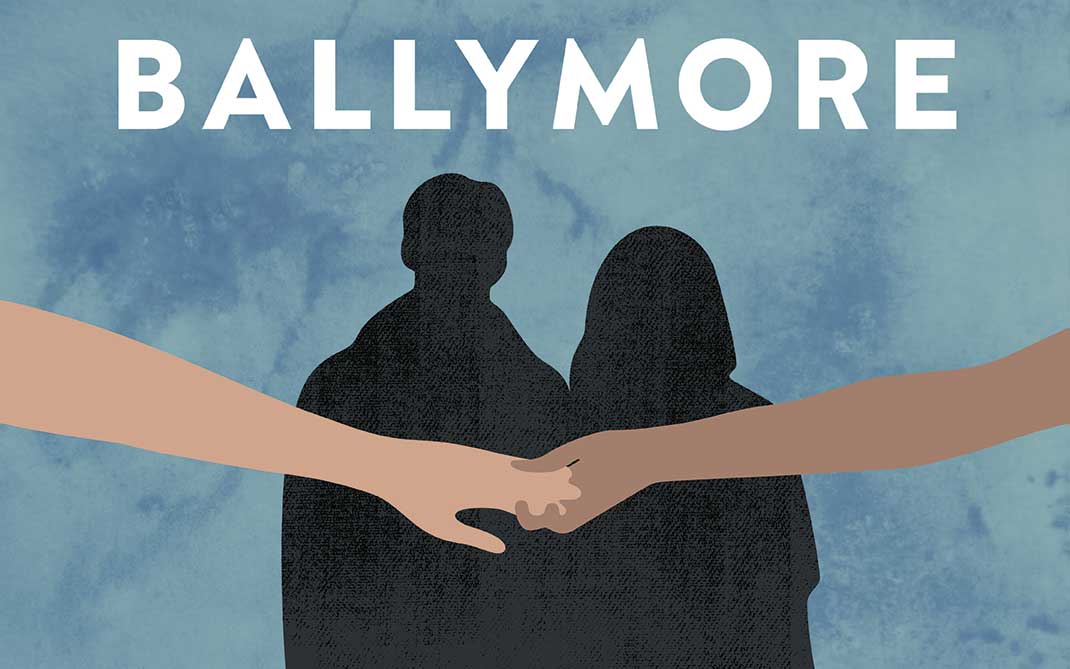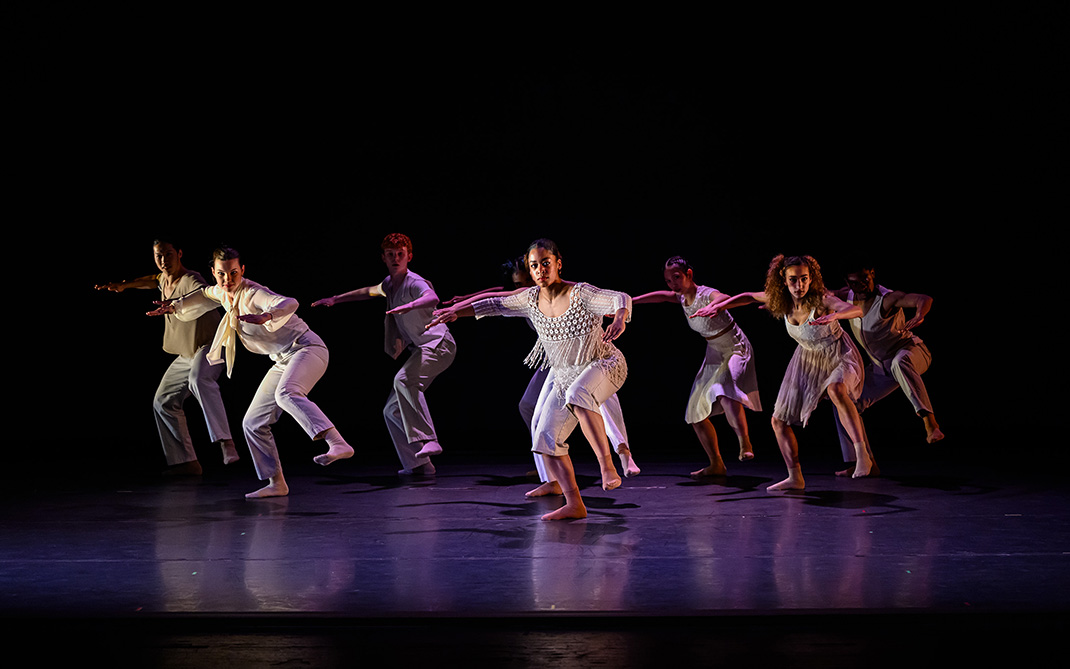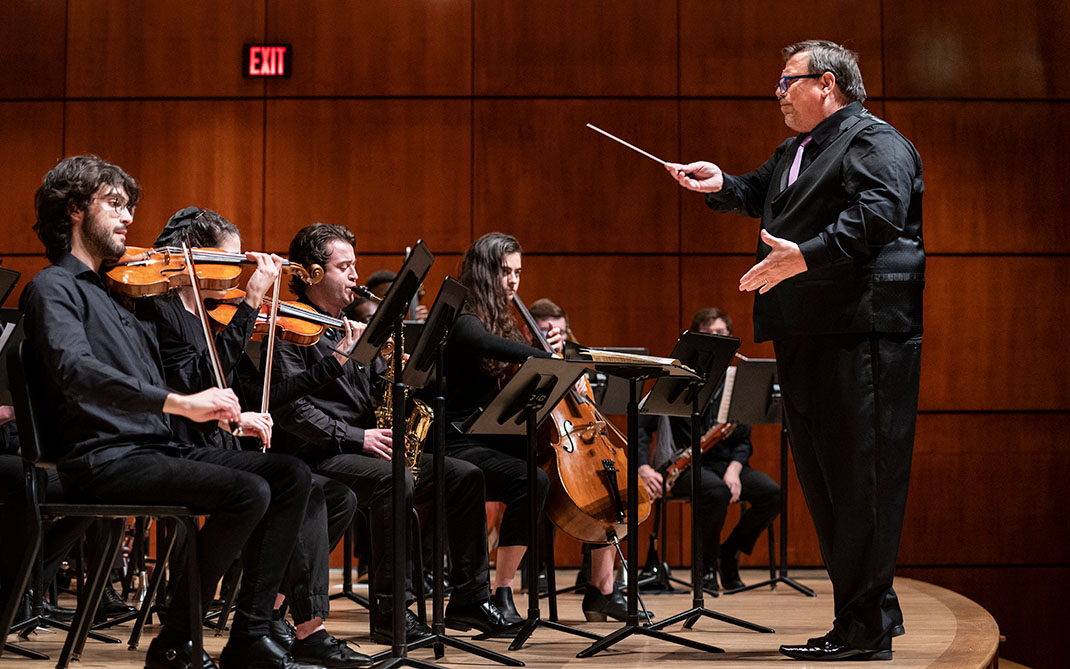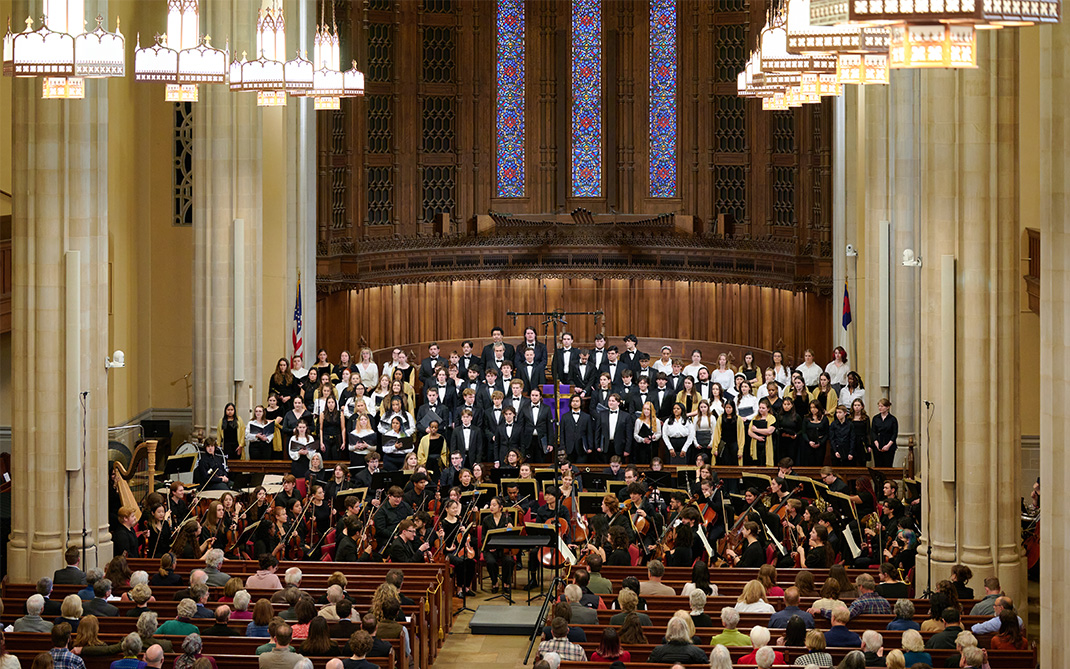UNCSA presents Shakespeare’s romantic comedy “Twelfth Night, or What You Will,” featuring original music
The schools of Design and Production, Drama and Music at UNCSA present “Twelfth Night, or What You Will,” a romantic comedy by William Shakespeare, which will feature original music made especially for this production by Music students.
The performances will take place Thursday-Saturday, April 4-6 and 11-13, at 7:30 p.m., and Sunday, April 7, at 2 p.m. in the Freedman Theatre at Performance Place, 1533 S. Main St. Tickets are $25 for adults and $20 for non-UNCSA students with ID and can be purchased online or by calling the box office are 336-721-1945.
“William Shakespeare’s ‘Twelfth Night’ is one of his most popular comedies, because its themes are universal — unrequited love, identity and death,” said Jason Bohon, assistant professor of movement in the School of Drama and director of the production. “It is a story that moves from of a period of isolation, loss and grief into a period of love, kindness and acceptance.”
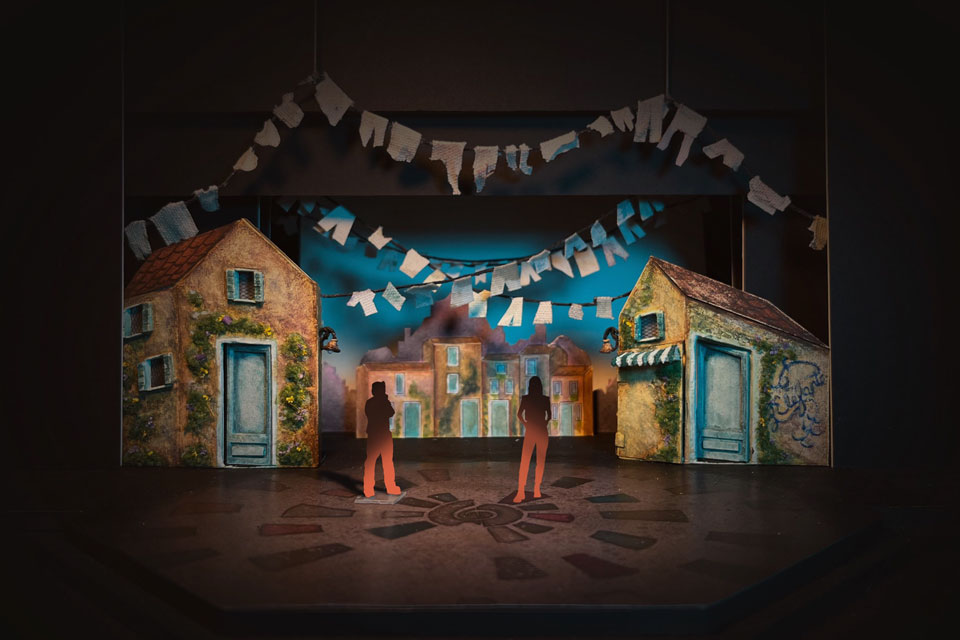
“Twelfth Night, or What You Will” rendering by scenic design student Lucas Becker
The story follows twins Viola and Sebastian who are separated in a shipwreck, which is an apt metaphor for the storm of emotions that ensue. Viola dresses as a boy and goes to work for and falls in love with Duke Orsino, who is in love with the Countess Olivia. Orsino sends Viola to court Olivia in his stead, but Olivia falls in love with Viola instead of with the Duke. Sebastian, thought drowned, arrives, causing a flood of mistaken identity. He marries Olivia, who thinks he is Viola. Viola then reveals she is a girl and marries Orsino. While a love triangle is at the center of the whirlwind plot, the story delves deeply into the many expressions of love, with its joys and sorrows.
New music, timeless story
Shakespeare wrote reams of wonderful prose, verse and song lyrics but no musical notation, which gives each production an opportunity to create a musical landscape that fits the world of the play.
When Director Bohon and Jared Miller, assistant professor of composition in the School of Music, recently found themselves together on a flight to New York, Bohon shared that he was setting “Twelfth Night” in 1950s Italy, which was a culture in the throes of conflicting emotions: joy that the war is over and consternation about the country’s involvement in the global conflict. And he was looking for appropriate music to set the play’s songs to.
“Some of our actor/musicians had already been thinking about original music,” Bohon said.
Miller shared that he had two undergraduate composition students who were especially interested in Italian music in the commedia dell’arte style, which is characterized by improvised dialogue and a cast of colorful stock characters. “The characters in ‘Twelfth Night’ are very commedia dell’arte stock characters,” Bohon said. “Those archetypes live in this play.”
For example, Feste, the Fool, might be considered similar to a spirit of music, the way Puck in “A Midsummer Night’s Dream” is a spirit of mischief and Ariel in “The Tempest” is a spirit of the elements.
“That collaboration was an accident,” Bohon continued, “But it’s turned into an extremely serendipitous outcome.”
The sound designer, fourth-year Music student Kai Machuca, compiled a Spotify playlist for the composers’ inspiration, and second-year Music students Quinn Albinus and Jacob Burnette created original music for this production, inspired by the 20th-century Italian musical landscape.
Actors who can also play instruments comprise the onstage band for the show. The instrumentation includes guitar and tambourine, as well as a cello that provides a leitmotif for the melancholy Duke Orsino.

“Twelfth Night, or What You Will” rendering by scenic design student Lucas Becker
In the story, Feste is returning to Illyria, the fictional city where the play is set, and Viola and Sebastian are strangers who have also come to Illyria. In subtle ways, these three outsiders are working to shake up the inhabitants of the city, to get them out of their entrenched ways.
“The people who live there are kind of stable and stuck,” Bohon said. “They are trying to work their way through and out of the post-war trauma, the way, to a lesser extent, we are coming out of COVID and a dark time of isolation.”
In this situation, Feste’s music is transformative. “He has been on an epic journey, and his music is both melancholy and hopeful,” Bohon said.
“I’m sort of the physical acting teacher,” he explained. “I’m interested in physicalization and characterization. As an actor, you can sit in a park and watch people. You can observe human beings, break down the way they move and then come into the studio as that character.”
As a teacher and a director, Bohon aims to help actors find their way into their physical life.
“We use a lot of masks, and I teach a survey of masks,” he said. “I am about the physical life of the play, the way that they move around in the space. Directing is a great way for me to bring what I teach in the classroom to life. I’m always looking for plays in the season that create that link between the classroom and the stage.”

“Twelfth Night, or What You Will” rendering by scenic design student Lucas Becker
Freedman Theatre is the largest theatrical performance space on the campus.
“It requires musculature of voice and body to fill the space,” Bohon said. “We are putting mics on the actors, but they can’t rely on the mics to fill the space. That space is so huge that when the actor turns just slightly upstage, you might lose the words.”
The microphones will help, Bohon explained, but the students will still need to project their voices and amplify their physicality to effectively inhabit the space.
From silos to communities
In the time before all the aspects of the play start to come together, the various artists can feel as though they are working in isolation. The actors are working on their parts, and the designers are across campus designing, but a production provides a chance for the actors to get outside of their silos and collaborate.
“It’s an exciting moment when I hear a wig designer ask an actor, ‘How would you imagine your character would fix their hair?’” Bohon said. “When they have a costume fitting, the designer will ask, ‘What do you need to support who your character is?’”
There are many ways that all the students involved in the production get to collaborate.
“I used to think that a director had to come into the room with all the ideas fleshed out, and the rest of us had to bend over backward to fulfill their vision,” Bohon said. “But now, I just bring this broad idea and ask the cast or the designers how we can narrow it.”

“Twelfth Night, or What You Will” rendering by scenic design student Lucas Becker
When one of his actors who has a dance and choreography background suggested some movement for the shipwreck scene, Bohon was delighted.
“When I see the actors feel like they have permission to make a bold suggestion like that, that is really exciting,” he said. “What we ended up with is not a dance, but it is a choreographed underwater sequence. They look as if they are being moved and lifted across the set. It’s movement-based storytelling.”
Another actor suggested that they add a “little jig” after one of Feste’s sad songs, to bring the mood back up.
“I’m really trying to create that space where everybody feels their voice is important in the creative process,” Bohon said. “We all want to figure out how we tell this story in this space, how everyone’s voice can fit into the creative space.”
The cast for “Twelfth Night, or What You Will” includes Drama student Sofie Berg as Feste, Harvaniya Krishanas Olivia, Natasha Dvorak as Malviola, Miranda Faria as Maria, Kaylee Hendry as Fabienne, Eric Canfield as Toby Belch, Ariel Sandino as Orsino, Kiara Magareigos as Valentine and Emma Fagin as Curio.
From the School of Design and Production, the scenic designer is Lucas Becker, the lighting designer is Noelle Logenberger, the wig and makeup designer is Brayden Pilson, the costume designer is Reagan Whiteley, the technical director is Christopher Hackett, the scenic paint charge is Tessa Hager, the properties director is Crosby Whitman Wood, the production stage manager is Isabella Tapia and the production manager is Eden S Kinsey.
Content warning: Nudity.
Get the best news, performance and alumni stories from UNCSA.
SUBSCRIBE TO OUR NEWSLETTERS(OPENS IN NEW TAB)(OPENS IN NEW TAB)(OPENS IN NEW TAB)(OPENS IN NEW TAB)(OPENS IN NEW TAB)(OPENS IN NEW TAB)(OPENS IN NEW TAB)(OPENS IN NEW TAB)(OPENS IN NEW TAB)(OPENS IN NEW TAB)
March 26, 2024
